Literary rating: ★★★★½
Kick-butt quotient: ☆☆
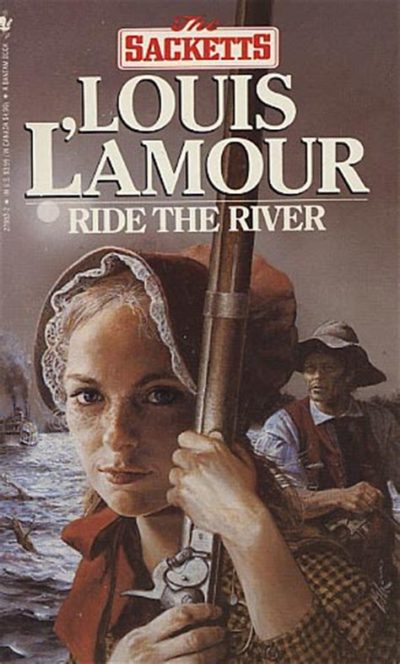 Goodreads characterizes this novel, set in 1840, as the fifth volume in the author’s Sackett series. The fictional Sackett family, in L’Amour’s writings, are descended from tough, larger-than-life Barnabas Sackett, who emigrated to America in the 1600s and settled on the frontier, and who laid down a law for his descendants that whenever a Sackett was in trouble, the rest were bound to lend their aid. This book is indeed about a Sackett, and no doubt chronologically the fifth in that sequence. But the sequence forms a multi-generational saga in which the individual books are generally about different people; though some knowledge of the family origins, as mentioned above, might be helpful (and is repeated in the text of this book, for readers who didn’t read the series opener), they can be read perfectly well as stand-alones. (I haven’t read any of the other Sackett novels.) L’Amour also wrote sequences of novels and stories about two other fictional families that bred adventurous pioneers, the Chantrys and the Talons, whose paths sometimes cross those of the Sacketts –and the paths of a couple of the Chantrys will bring them into this tale as well.
Goodreads characterizes this novel, set in 1840, as the fifth volume in the author’s Sackett series. The fictional Sackett family, in L’Amour’s writings, are descended from tough, larger-than-life Barnabas Sackett, who emigrated to America in the 1600s and settled on the frontier, and who laid down a law for his descendants that whenever a Sackett was in trouble, the rest were bound to lend their aid. This book is indeed about a Sackett, and no doubt chronologically the fifth in that sequence. But the sequence forms a multi-generational saga in which the individual books are generally about different people; though some knowledge of the family origins, as mentioned above, might be helpful (and is repeated in the text of this book, for readers who didn’t read the series opener), they can be read perfectly well as stand-alones. (I haven’t read any of the other Sackett novels.) L’Amour also wrote sequences of novels and stories about two other fictional families that bred adventurous pioneers, the Chantrys and the Talons, whose paths sometimes cross those of the Sacketts –and the paths of a couple of the Chantrys will bring them into this tale as well.
Sixteen-year old Echo Sackett, of the Tennessee Sacketts, lives in the mountains with her family. Her pa is recently dead; her brothers are on an extended trapping expedition further west, and her uncle is laid up from a bear attack. So when an unusual circumstance brings an ad in a peddler-borne Pennsylvania newspaper to light, seeking the youngest descendant of one Kin Sackett to claim an inheritance, it falls to Echo to undertake the long and somewhat dangerous round trip to Philadelphia to receive and bring back the money. Readers accustomed to judging teens by the most immature and irresponsible examples that 21st-century American entitlement culture can produce might well see this as a foredoomed exercise that should never have been contemplated. But Echo is a product of a very different kind of culture. A crack shot who packs a pair of Doune pistols (see this link: http://firearmshistory.blogspot.com/2010/12/pistols-highland-pistol.html ) and is accustomed to shooting game for the table without missing, self-reliant, mature and capable Echo is a formidable young woman, not a child. She might need her cool head and firearms skills (and her “Arkansas toothpick”) on this trip, because there are those who didn’t want that ad seen to start with, and who’d prefer to have that money in their own pockets, rather than hers.
One reviewer said he felt this novel was “gimmicky.” I’m not sure what he considered the “gimmick” –possibly the protagonist’s gender, or the Sackett family’s clannish ethos of sticking together and helping each other in the face of trouble, including attacks by outsiders. Personally, I didn’t consider either element a gimmick. For me, seeing competence and fighting skills on the distaff side of the equation is a strong plus; I don’t see those kinds of qualities as inconsistent with female nature in any way, and Echo has plausible reasons for her characteristics. The Sackett ethic strikes me as something all families could profit by internalizing, and as such a worthwhile message for contemporary society. L’Amour’s knowledge of his settings, from 1840s Appalachia to distant Philadelphia, and of relevant history, is clearly extensive; he brings his world to life well. The characters, especially Echo herself, are vividly drawn and evoke reactions from the reader. In much of his work, L’Amour’s plotting is often predictable, but he managed to take me by surprise with one key development here –in a good way! There’s no sex and very little bad language here, and respectful treatment of a black character. With plenty of effective action scenes, the book is a pretty quick read.
There’s also a element of low-key, but serious, romantic attraction that develops in the book. For some readers, this will be problematic because of Echo’s age; while the age difference per se isn’t excessive, at this time of her life, it happens to put her love interest above 18 while she’s below that age. This didn’t scandalize me, in context; as I said, Echo is a woman, not a child (and in her community, she’s considered to be of a normal marriageable age). I didn’t consider the mutual attraction to be in any sense pedophilic or abnormal.
My one criticism of the book is the slipshod writing/editing in several places. Echo serves as first-person narrator for most of the book; but for scenes to which she isn’t privy, or where he wants to give us a different perspective, L’Amour occasionally uses other viewpoint characters, in third person. There’s nothing inherently wrong with that, and it even enhances the story at times. But at other times, L’Amour forgets which narrative thread he’s using, and is inconsistent with pronoun use in the same sentence or paragraph. That takes a reader out of the story, and is particularly frustrating when you’re reading this aloud (as I was, to my wife). Just for that reason, I deducted a half star. But that didn’t keep me from really liking the book! Any read by L’Amour has always been a winner for me, and this one was no exception.
Author: Louis L’Amour
Publisher: Bantam, available through Amazon, both for Kindle and as a printed book.
A version of this review previously appeared on Goodreads.
Book 5 of 19 in the Sacketts series.





 There was a while there, where Russia dropped out of the top spot as far as being cinematic villains were concerned. No longer the “Evil Empire” of the Reagan era, they had largely been replaced, in the post 9/11 landscape, by Islamic fundamentalism. But now, those pesky Russkies are back as the bad guys once again, following their interference in the sacrosanct and solemn process of Americans electing a president. [I really must figure out a sarcasm font for this site] While this is supposedly set in the present day – I say that, because at one point, cutting-edge computer software is delivered on a set of floppy disks! – this feels more like something born out of Peak Cold War.
There was a while there, where Russia dropped out of the top spot as far as being cinematic villains were concerned. No longer the “Evil Empire” of the Reagan era, they had largely been replaced, in the post 9/11 landscape, by Islamic fundamentalism. But now, those pesky Russkies are back as the bad guys once again, following their interference in the sacrosanct and solemn process of Americans electing a president. [I really must figure out a sarcasm font for this site] While this is supposedly set in the present day – I say that, because at one point, cutting-edge computer software is delivered on a set of floppy disks! – this feels more like something born out of Peak Cold War. Not sure I’d go that far: I know it’s a great deal less
Not sure I’d go that far: I know it’s a great deal less 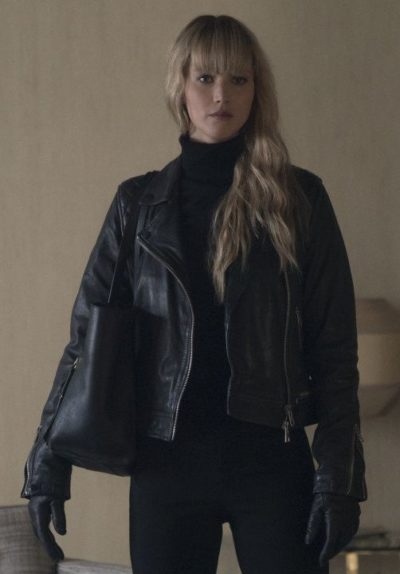 No, the main theme of the movie is the constantly shifting sands underfoot, which could easily open up at any moment and swallow the main protagonist. Some characters die during the course of the story, and it’s not necessarily the guilty ones who catch a bullet. But it’s a problem that there are hardly any sympathetic characters in the movie. Even Dominika is a big question mark, as the Russian secret service tactics force her to play a game of deception and manipulation, exactly as she was trained for. It leaves you, even at the end, guessing on which side she is/was/may have been on, in shades of Atomic Blonde. Things constantly change…
No, the main theme of the movie is the constantly shifting sands underfoot, which could easily open up at any moment and swallow the main protagonist. Some characters die during the course of the story, and it’s not necessarily the guilty ones who catch a bullet. But it’s a problem that there are hardly any sympathetic characters in the movie. Even Dominika is a big question mark, as the Russian secret service tactics force her to play a game of deception and manipulation, exactly as she was trained for. It leaves you, even at the end, guessing on which side she is/was/may have been on, in shades of Atomic Blonde. Things constantly change… I do give credit to Lawrence, who never saw an acting school from the inside, and has matured – yes, even by my standards! – into a “real actress”. I personally find it very positive that a studio is willing to make a movie almost entirely focused on its story with a nice budget ($69 million) instead of the next action-SFX-extravaganza. But I have seen better. That said, for those willing to invest the time and money, the movie may actually provide something. The actors are all good – I have not mentioned Mary Louise Parker in surprise cameo in the middle of the movie), the production design is impressive (even if Film-Russia seems to have a preference for 1970’s interior design) and the James Newton Howard (Salt, btw.) score is solid as always, even though it mainly plays in the background.
I do give credit to Lawrence, who never saw an acting school from the inside, and has matured – yes, even by my standards! – into a “real actress”. I personally find it very positive that a studio is willing to make a movie almost entirely focused on its story with a nice budget ($69 million) instead of the next action-SFX-extravaganza. But I have seen better. That said, for those willing to invest the time and money, the movie may actually provide something. The actors are all good – I have not mentioned Mary Louise Parker in surprise cameo in the middle of the movie), the production design is impressive (even if Film-Russia seems to have a preference for 1970’s interior design) and the James Newton Howard (Salt, btw.) score is solid as always, even though it mainly plays in the background.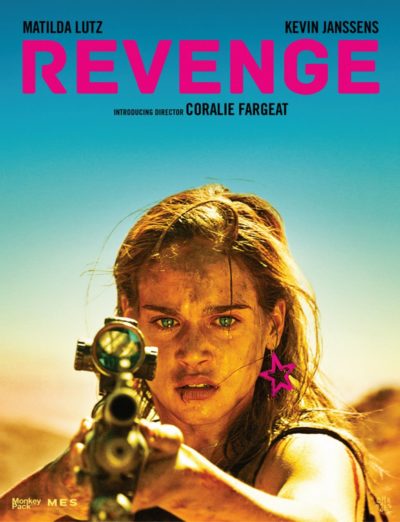
 This French rape-revenge movie is the most blood-drenched GWG film I’ve seen since
This French rape-revenge movie is the most blood-drenched GWG film I’ve seen since  For a film lauded for its supposed up-ending of the male gaze, this feels a bit odd, since it could be read as the sexual assault triggering Jen’s blossoming: rape as psychological therapy. She should thank her attackers! [The image of a rising phoenix branded into her skin, due to her impromptu first-aid, is not exactly subtle in its imagery. Then again, the entire film is not exactly subtle, and proudly defiant as such] If that reading is on shaky ground, it’s also amusing to note Revenge utterly fails the dreaded Bechdel Test, despite being brutally empowering, to a degree rarely seen. More evidence – as if it were really needed – of how shitty the Bechdel Test is at evaluating films.
For a film lauded for its supposed up-ending of the male gaze, this feels a bit odd, since it could be read as the sexual assault triggering Jen’s blossoming: rape as psychological therapy. She should thank her attackers! [The image of a rising phoenix branded into her skin, due to her impromptu first-aid, is not exactly subtle in its imagery. Then again, the entire film is not exactly subtle, and proudly defiant as such] If that reading is on shaky ground, it’s also amusing to note Revenge utterly fails the dreaded Bechdel Test, despite being brutally empowering, to a degree rarely seen. More evidence – as if it were really needed – of how shitty the Bechdel Test is at evaluating films.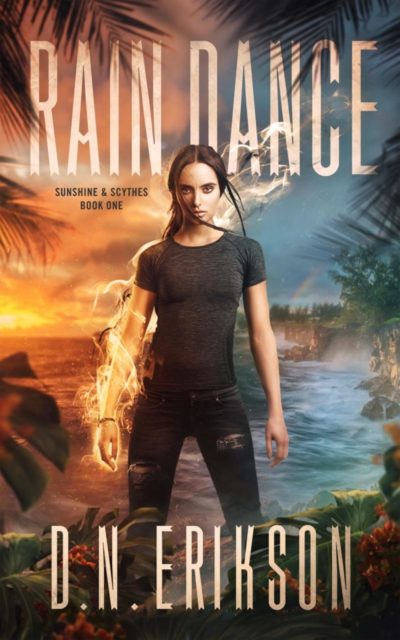 The saying, “You only live twice,” is supposed to be a metaphor, but for Eden Hunter, it ends up being very much a statement of fact. She’s a former con-artist, dragged back from beyond the grave by vampire warlord, Aldric. He puts her to work on a hidden island as his personal soul-harvester, with a strict quota per week. It’s not great work, but it’s steady – at least until Eden’s beach-front house is attacked by a werewolf with murder on its furry mind. She then finds herself seen by the FBI as their prime suspect after an old partner in confidence tricks turns up dead on her doorstep. But, wait! There’s more! She has to deal with the rain goddess – presumably, the source of the title – to whom Eden is also in thrall, and whose rules she just broke. A gang involved in robbing her boss of millions in gold bullion. Her dead sister. A serial-killer politician. Oh, and a talking cat.
The saying, “You only live twice,” is supposed to be a metaphor, but for Eden Hunter, it ends up being very much a statement of fact. She’s a former con-artist, dragged back from beyond the grave by vampire warlord, Aldric. He puts her to work on a hidden island as his personal soul-harvester, with a strict quota per week. It’s not great work, but it’s steady – at least until Eden’s beach-front house is attacked by a werewolf with murder on its furry mind. She then finds herself seen by the FBI as their prime suspect after an old partner in confidence tricks turns up dead on her doorstep. But, wait! There’s more! She has to deal with the rain goddess – presumably, the source of the title – to whom Eden is also in thrall, and whose rules she just broke. A gang involved in robbing her boss of millions in gold bullion. Her dead sister. A serial-killer politician. Oh, and a talking cat.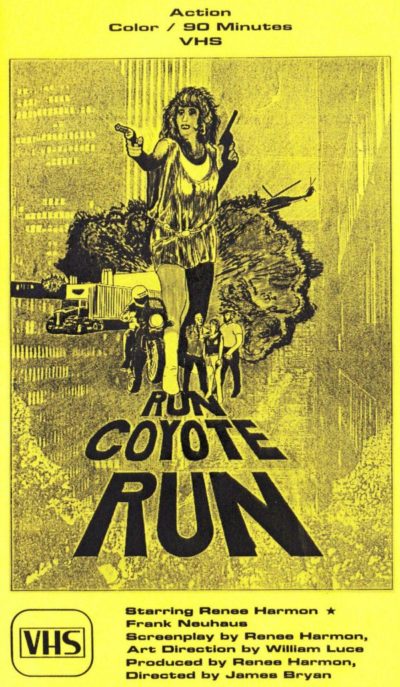 I must have masochistic tendencies. For having seen Bryan’s
I must have masochistic tendencies. For having seen Bryan’s 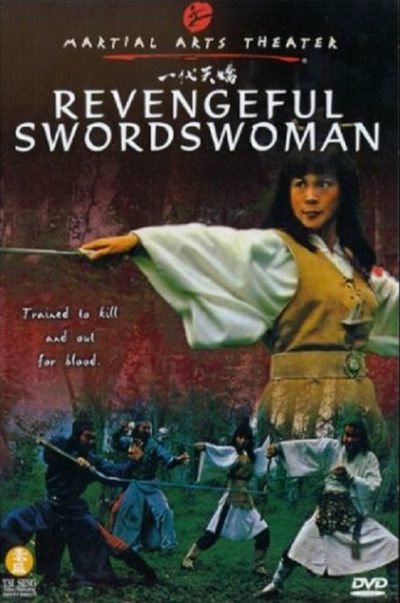 There’s no hanging around here. Virtually as we meet our heroine, Hsiang Ying (Lee), she’s getting tossed off a cliff by her kung-fu teacher, into a pack of wolves. Having survived that and made her way back – perhaps assuming this was all some terrible misunderstanding – her master then disavows her, announces he was the man responsible for killing her father, and locks her up in a cage. This all happens within, literally, three minutes of the film starting. Fortunately, a passing stranger sees fit to free her from the cage, and the ‘Heartless Lady’, as she becomes known, can go on her way, with the eventual aim of being exactly what the title suggests: revengeful.
There’s no hanging around here. Virtually as we meet our heroine, Hsiang Ying (Lee), she’s getting tossed off a cliff by her kung-fu teacher, into a pack of wolves. Having survived that and made her way back – perhaps assuming this was all some terrible misunderstanding – her master then disavows her, announces he was the man responsible for killing her father, and locks her up in a cage. This all happens within, literally, three minutes of the film starting. Fortunately, a passing stranger sees fit to free her from the cage, and the ‘Heartless Lady’, as she becomes known, can go on her way, with the eventual aim of being exactly what the title suggests: revengeful. Tied somewhat to our March feature on the earliest action heroines in cinema, is this Chinese film, It’s not just the oldest surviving action heroine film from that country, it’s the oldest martial-arts film of any kind. This silent feature dates from all the way back in 1929 – I had to keep reminding myself that the “red” in the title was not a Communism reference, this being from well before such things. It’s most likely an attempt to cash in on The Burning of the Red Lotus Temple, a now-lost film series whose highly successful release had begun the previous year.
Tied somewhat to our March feature on the earliest action heroines in cinema, is this Chinese film, It’s not just the oldest surviving action heroine film from that country, it’s the oldest martial-arts film of any kind. This silent feature dates from all the way back in 1929 – I had to keep reminding myself that the “red” in the title was not a Communism reference, this being from well before such things. It’s most likely an attempt to cash in on The Burning of the Red Lotus Temple, a now-lost film series whose highly successful release had begun the previous year.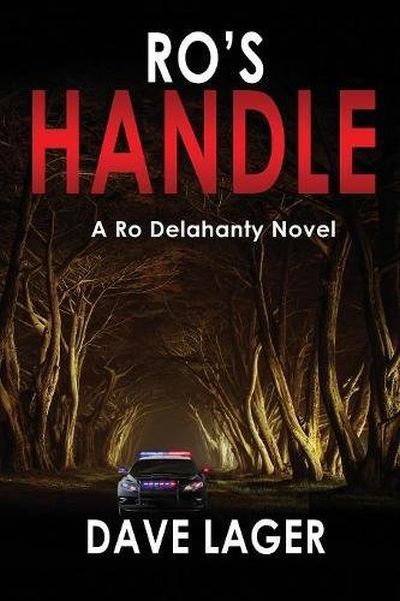 Although I didn’t set out to, in roughly the past year, I’ve read no less than three novels, and one short e-story, that feature female cops as protagonists: this one, “The Academy” (the short e-story that’s the teaser for Robert Dugoni’s Tracy Crosswhite series), Tami Hoag’s A Thin Dark Line, and Justin W. M. Roberts’ The Policewoman. It occurred to me that an instructive way to open this review might be to compare and contrast the four works.
Although I didn’t set out to, in roughly the past year, I’ve read no less than three novels, and one short e-story, that feature female cops as protagonists: this one, “The Academy” (the short e-story that’s the teaser for Robert Dugoni’s Tracy Crosswhite series), Tami Hoag’s A Thin Dark Line, and Justin W. M. Roberts’ The Policewoman. It occurred to me that an instructive way to open this review might be to compare and contrast the four works.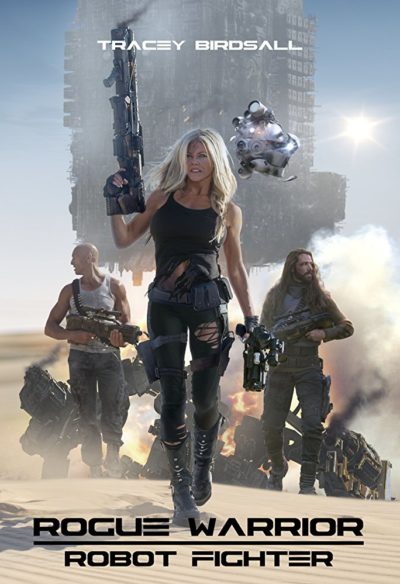 Actually, if only this
Actually, if only this